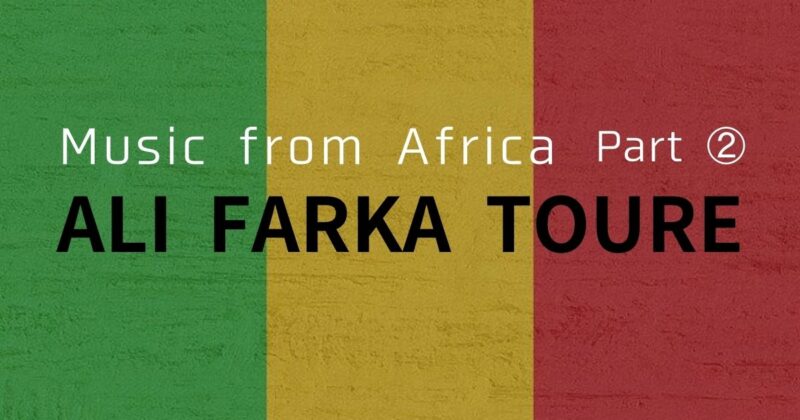Hi. It’s konkaz (@konkazuk) here.
Have you ever heard of an artist called “Ali Farka Toure” ?
He is a folk singer/guitarist from “Mali” which is located in West Africa, and first time I listened to his music was… when I was a university student.
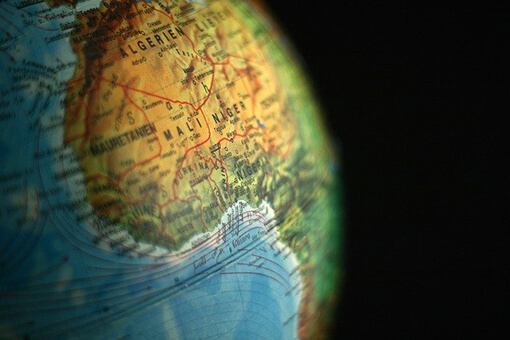
At that time, I used to live in Amagasaki city in Hyogo prefecture and there was a group of people who were really into blues music.
As I hung out with them, I naturally I started collecting blues records as well as participating in blues jam sessions.
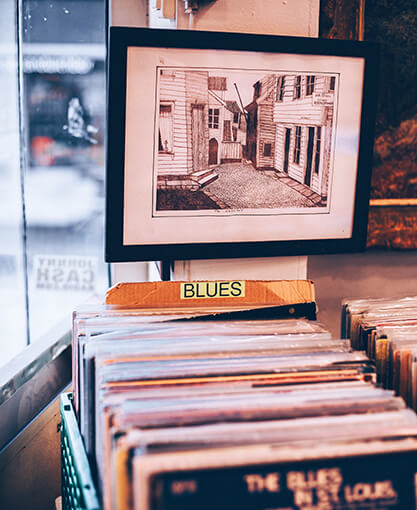
Among those people whom I was hanging out with, there was this shrewd guitarist who was able to steal the style of “Lighting” Hopkins” and “John Lee Hooker” so effortlessly.
He was jobless at the time and had just moved out from his flat, so he was basically crashing in from one place to another.
He once rang me up (woke me up, to be precise!) during the night and told me that he only had 500 yen [=a few pounds at that time] left and asked me whether he should keep that money for using as a deposit to rent a room (Who the hell would take that amount!) or get a bottle of cold sake to sleep with…
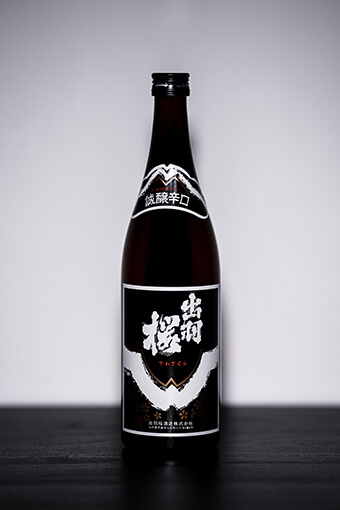
I don’t quite remember how the conversation ended, but I am sure he opted for the second option! w
Anyway, this very man recommended me
“Ali Farka Toure”
whose music I am going to introduce here.
I had not listened to his music for a while, but one of his old recordings had just been re-issued lately, therefore, I bought the LP and listened to it…
…and it was absolutely brrrilliant! 💕
So, here, I have selected three of his amazing records and I am going to introduce them.
Ali Farka Toure (1987)
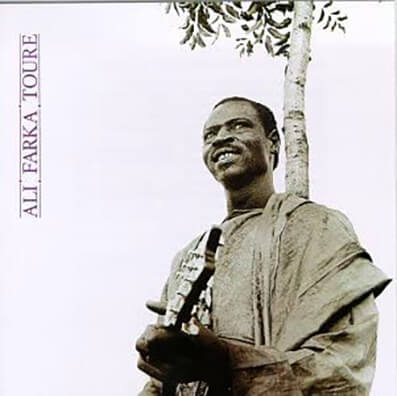
There is this self-titled LP which was released in 1987 by a British world-music record label called “World Circuit“, and this was the very first album I was to experience
“Ali Farka Toure” ‘s music
which was brought in by aforementioned “cold-sake-drinking shrewd guitarist.

As I’m listening to this now, it still sounds fresh and heart-warming.
Back in the days of university student, I’d had an impression of something more bluesy about this album, however, in fact, it is just the guitar licks he uses which shows the style of some country blues music.
This is actually the album of folk music, I’ve realised.
While you listen to black American’s country blues, you hear the story of…
“drunkenness”
“prostitution”
“mischievousness”
“sadness”
“hopelessness”
and so on…
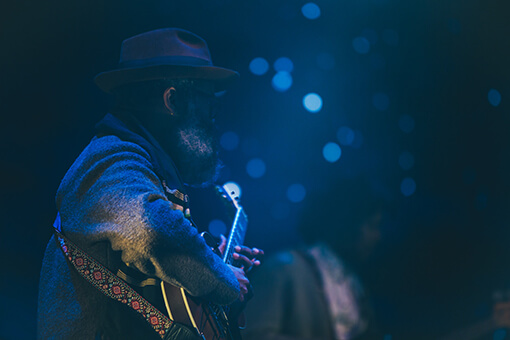
and it might match up well with the ambience of dim lights in the bar and night clubs, on the contrary, what is illuminating Ali Farka Toure’s music is definitely the sunlight of Africa.
And I feel that the sunlight in this particular album has got a vibe of the evening twilight, which can be found in a Japanese lullaby “Crows are cawing, so it’s time to go home”…
A sort of relaxing ambience that we sometimes get surrounded by towards the end of the day.
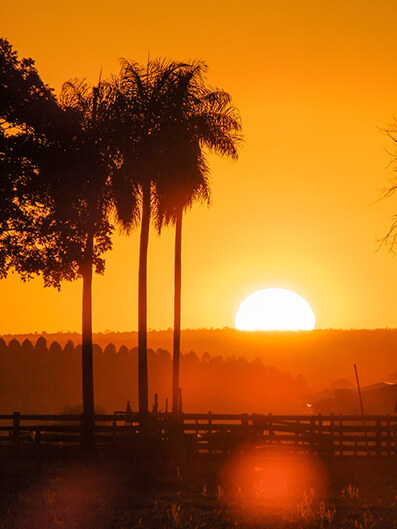
It’s also nice to hear him singing and playing the guitar with a very simple setting… backed by only bongo and *calabash (and they are both played by himself with the recording).
*a percussion instrument created from gourds
I highly recommend this album!!!
Ali Farka Toure (Red Album)
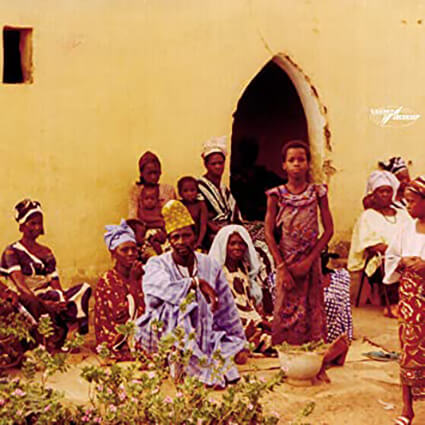
The next one is this “Red album” !!!
This album was originally released by French record company called “Disques Esperanto”in 1984, but the LP record was reissued in Europe by British record label called “World Circuit” in March 2021. (Hooray!)
Besides, it comes with Obi strip and also the insert is kindly included just like Japanese issues!
Most of his early recordings have no title and simply his name was put on their sleeves, therefore it can be tricky when it comes to explaining which album you are talking about.

However, regarding this album, because the colour of its sleeve (around the picture) was red with the 1st issue, it is often called “Red album” to distinguish from the others.
Anyway, compared with the album which was released in 1987 (the one I recommended earlier), this one sounds somewhat bluesier…
I also could hear the distinctive “sound” or “boogie-woogie groove” of “John Lee Hooker” (an American blues musician) here and there in his guitar playing and thought it was really cool…
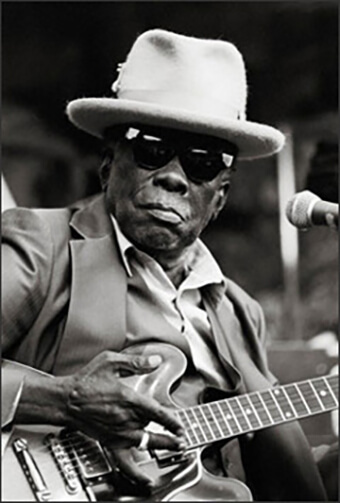
Then, I found the fact in Wikipedia and in some reviews that he had actually been dubbed “African John Lee Hooker”. w
I’ve also found him in one article (The Guardian) being upset about this fact.

When it comes to art/music, it is quite common that what had inspired you during the early stage of your artistic career comes out naturally as a part of your work in one way or another.
So, it must be frustrating if somebody captures only a part of your source and take its very part just for the purpose of comparing so that they can describe the artist easily,
Well anyway, putting the matter aside, this is simply a cool album.
I reckon some people might find the fact of bluesy numbers (I am not talking about the bluesy sound of electric-guitar-playing here. Besides his songs don’t have 12 bar chord progression, which is typical of blues music, either) being sung by non-English language fresh and fascinating.
Also, the synchronization between his voice (double tracking?) and percussion-playing is emphasizing the ethnic ambience.
This is a crispy album where you can experience both the “heat” of Africa and the “breeziness” of his proficient guitar playing in one.
ALI TOURE FARKA (1977)

This album (EP?) where his middle and sir name were put the other way round on its sleeve is one of his early recordingsreleased in 1977 by French record company called “Sonafric” that exclusively deals with African music.
I personally think this is a beautiful album where you can hear his sublime guitar-playing.
However, the fact that it was recorded with no percussionsand repetitive sound of fiddle-playing can be heard throughout the few songs might give people an impression that this album is not “Pop” enough.
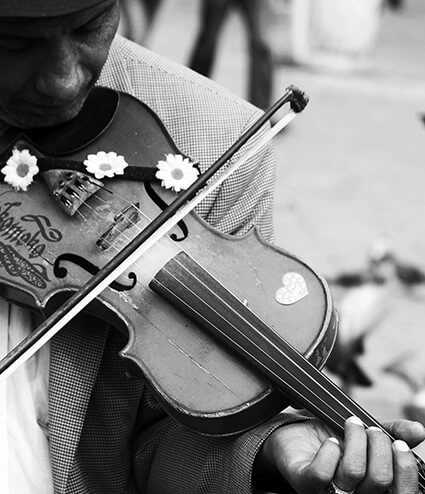
Therefore, I assume this album could be “love it or hate it” type…

If you are a sort of person who could listen to …let’s say …the old recordings of Woody Gurthrie without getting tired, you will be fine with this album.
Anyway, I have introduced my personal his greatest three albums so far, but if I am to select his commercially popular albums, they will be…
“River” which was released in 1990.
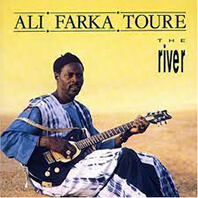
… and “Talking Timbuktu” (1994) which is featuring American musician “Ry Cooder”.
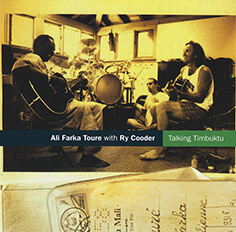
And finally, “Ali and Toumani” (2010) which is a work of collaboration between Ali and a country folk called “Toumani Diabate” who plays the instrument called “Kora”.
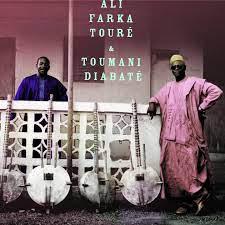
However, from the “River” on wards, he often plays electric guitar, and from my point of view, he sometimes goes over the top and the music gets too busy.
And as for the album which was recorded with Ry Cooder, the typical drumming style for rock music, which can be heard often with the performance of electric guitar blues, spoils the good ethnic vibes that exist in Ali’s music.
And finally, regarding the collaborative album with “Toumani Diabate”, it sounds absolutely beautiful, however, those skillful instrumental recordings can be just like BGM in the restaurant, I have to say.
(They are only my personal opinion, just in case…)
After all, there is no “wabi-sari” or a kind of “magic”, which once existed in his early recordings, in these commercially successful ones, and they sound just like those typical recordings by the artists who have become …a “celebrity”.
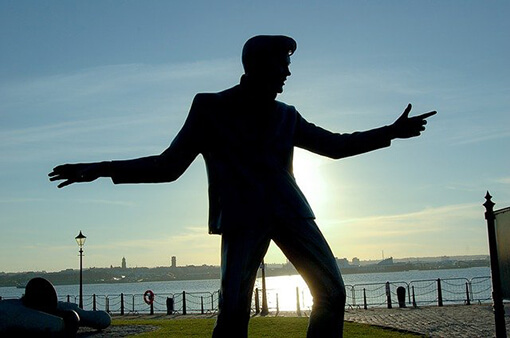
Therefore, they are not my cup of tea…
In conclusion, I recommend those early stuff whose sleeve has only his name with no title.
…Well, this is it.
Bye now.
konkaz
You can read this blog post in Japanese from the link below.
👉 西アフリカはマリ出身のシンガーソングライター “アリ・ファルカ・トゥーレ”。 一味違ったスタイルで奏でるブルースギターが超カッコいい!

